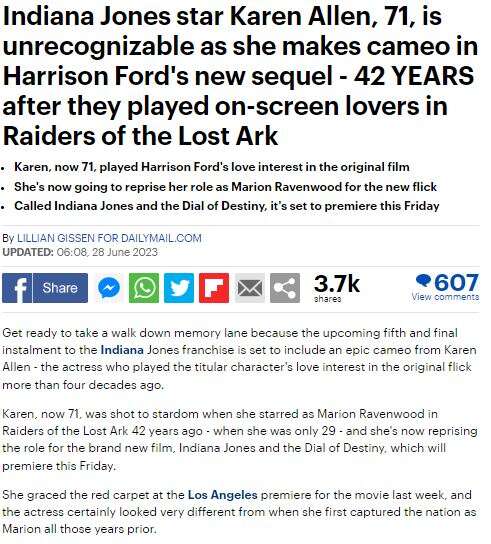
The ruling by the Independent Press Standards Organisation (IPSO) that Jeremy Clarkson had made “pejorative and prejudicial reference” to the Duchess of Sussex’s gender has created almost as big a stir as the original column that appeared in the Sun last December.
To camps on both sides of the argument, the ruling comes as a significant line in the sand.
To the Fawcett Society who brought the complaint, this ruling marked a historical first, a landmark decision against misogyny that will help to elevate the state of public discourse about women.
To some in the media industry, this ruling signifies the press regulator can be influenced by social media pressure and political interference and now makes judgements on acceptable language, taste or opinion with chilling implications for the freedom of the press.
But for us at the Centre for Ageing Better, it was another reminder of the uncertainty and inconsistency on an issue that has always been part of IPSO’s remit since its foundation.
The ruling against Jeremy Clarkson’s article, while being the first to take judgement on sexism, was also only the third discrimination complaint to be upheld in the regulator’s nine-year reign.
Previously, IPSO had upheld complaints regarding a reference to a blind and transgender politician in a Rod Liddle column and an unnecessary reference to an individual being disabled in a local news story.
Clause 12 in the Editors’ Code sets out expectations with regard to avoiding discrimination.
It states: “The press must avoid prejudicial or pejorative reference to an individual’s race, colour, religion, sex, gender identity, sexual orientation or to any physical or mental illness or disability.”
What Clause 12 allows by omission is for one form of discrimination to run rampant in the media: ageism.
A wider culture of age discrimination
Age is one of the protected characteristics under the Equality Act 2010 alongside race, colour and religion, so its exclusion from the Editors’ Code is a huge omission that means there are no standards that the press must adhere to when reporting on stories relating to age.
In the current media climate, it is apparently perfectly permissible to refer to older people as “wrinklies” (Bloomberg) or describe them collectively as “doddery” (Mail on Sunday) or a “silver tsunami” (The Telegraph), stoking fears of an ageing population and placing older people as the villains selfishly using up all of society’s resources.
A lot of ageist coverage wrongly and lazily clumps huge numbers of people living extremely contrasting lives into one group of greedy “boomers” (FT) who flourish at other generations’ expense. This image is neither accurate nor helpful in trying to tackle the roots of societal inequality.
It is even permissible refer to Covid 19 as a cull of the older population which may have benefited the economy.
Could you imagine such a sentiment being written about any other societal group with a shared protected characteristic? Of course not, and rightly so. So we should not let it slide when it comes to age.
Much of the coverage related to Joe Biden’s decision to stand for a second term as US president fails this test. No one would claim publicly that being a woman or being black should automatically disbar a candidate from running for office.
In discussing Biden’s suitability for the role, age is synonymous with bumbling incompetence and fragility. Biden may not be the best qualified to be the leader of the free world, but that is not a given simply because of the date on his birth certificate. There may be legitimate concerns about his competency for the role, but they are not the inevitable consequence of being 80.
Ageist coverage in newspapers is so commonplace that it has lost its shock value.
But absurd articles like this from the Daily Mail that criticise and ridicule individuals – who are almost always women – in the public eye for the natural and inevitable process of ageing are extremely damaging.

And they are bad business as well, incurring angry reactions from readers who are sick of being bombarded with poisonous messages every day telling them that to get older is to fail.
The fact that IPSO allowed age to be omitted in the first place and has ignored calls for that to be rectified in the past is symptomatic of a society that fails to take ageism seriously enough.
‘Representation is predominately negative and highly reliant on stereotypes’
To want better protections for how older people are written about in the media is not about being politically correct or overly sensitive. How the media shapes public discourse about a certain group of people or the issues related to them matters and can have a profound impact on people’s lives.
Research carried out by the Centre for Ageing Better shows the media’s representation of older people is predominately negative and highly reliant on stereotypes. Ageing and older age is represented as a time of inherent vulnerability, frailty and decline with older people all suffering from poor health.
The media also repeatedly pits older people against younger people in ‘boomer vs millennial’ narratives around competition for resources, with older age often being used as a proxy for wealth. This hides the inequalities that exist within generations and the fact that two million people over the age of 65 are living in poverty.
This relentlessly negative outlook on ageing inevitably shapes an individual’s outlook on their own ageing to their detriment. Negative representations of older age in the media lead to negative opinions of older age within the individual that can then lead to a negative impact on health, health behaviours and cognitive performance.
One study showed that older individuals with more positive self-perceptions of ageing lived more than seven years longer than those with less positive self-perceptions of ageing, even after accounting for age, gender, socioeconomic, status, loneliness and functional health.
The repercussions and the significance of this latest IPSO ruling and the broader implications for press regulation in this country may take some time to become apparent.
But one logical and immediate step that needs to follow is IPSO should end the anomaly in the Editor’s Code that fails to treat all discrimination equally. This step would not infringe on the freedom of the press but could help us all to feel a little better about getting older.
Email pged@pressgazette.co.uk to point out mistakes, provide story tips or send in a letter for publication on our "Letters Page" blog
